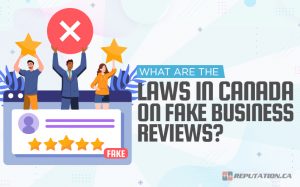There is an old saying that everyone has skeletons in their closet, though the extent to which they haunt us varies. Anyone claiming to have gone their entire lives without making a mistake is likely dishonest, but those lies do not always come to light. The harsh truth is that only certain people have to worry about strangers digging into their past, and the average citizen is unlikely to have such concerns since most of society is unaware of them.
We live in an era where people in the spotlight face unrelenting scrutiny from their consumers. This affects politicians, celebrities, business executives, and anyone else whose career or lifestyle puts them in the public eye. Once we become important to the public, in any capacity, we are put under a proverbial microscope and carefully monitored.
The scrutiny from the general public means we must carefully manage our reputations to avoid losing favor with our consumers. Unfortunately, your reputation is extremely fragile despite being difficult to build. We must be very careful with how we behave and conduct ourselves in public because everything we say and do is used against us. One of the demographics that must be particularly careful about their reputations is the founders and CEOs of companies.
Customers have become more discerning about the businesses with which they do business. As a result, founders and CEOs that have run afoul of the public lose a lot of business, which means knowing how to manage their reputations is essential.
Modern society no longer relies on traditional communication to express opinions or convey news to community members. Nowadays, we have come to rely on social media platforms like Twitter and Facebook to communicate with each other.
This has allowed us to remain in close contact with distant relatives, friends from our past, and new associates made via professional networking. To the average observer, social media only benefits private citizens who want to maintain close connections with their friends and family. The deeper one goes, the quicker they recognize that social media has become a valuable tool for corporations worldwide. Companies have begun using social media, with a special emphasis on Twitter, to communicate with their clients and customers.
This has opened a new avenue for these companies to reach their target demographics and make announcements with greater reach.

Most companies use social media to address customers’ concerns while promoting events and new products. Social media has essentially become a secondary advertising center for most companies, which is supported by the customers who actively follow those profiles. Often, the CEO or founder of the company will maintain a personal account separate from the official company profile but still tied to it by association.
This means that, whether you like it or not, the posts on your personal profile will generate a domino effect that impacts your company. Posts made on your personal profile are considered representative of the company’s political and philosophical opinions. When an employee makes an offensive post, customers will demand the company discipline them.
When the CEO or founder makes a post that some might consider offensive, customers will take issue with the company. This can cause you to lose some business since customers who disagree with your philosophies will view you with animosity.
Protecting your reputation and that of your company requires you to carefully curate your social media posts to avoid making enemies of your consumers. For example, let us say you are an avid fan of an irreverent television series that makes frequent jokes about hot-button political topics. You should avoid reposting those jokes or the show on your personal profile if there is any way it can be traced back to your company profile. You should also ensure your posts about sensitive information are tactful and do not appear offensive or inappropriate.
Step #2: Do Not Leave Controversies Unaddressed
When a company makes a mistake or experiences a controversial development, customers want to know that it is being handled. When something shakes the customers’ trust in the company or product, they are less likely to do business with you until the situation is resolved. Unfortunately, many companies have adopted a “this will blow over” mentality for many issues and do not comment on the issue.
While it might be comforting to think your consumers will eventually forget about or forgive the problem, it causes serious damage to your reputation. We mentioned earlier that businesses have begun using social media to communicate with customers and expand their industry. This only works because there is a demand from consumers to be able to talk to representatives of the companies to which they give money. When a company employs radio silence about controversial behavior, it defeats the purpose of the social media platform.
While you might want to use your company’s social media profile to promote your business and its promotions to a target demographic, that is not the primary reason your consumers follow it. Most customers follow corporate social media accounts because it makes it easier for them to express their concerns to someone with a direct link to the company.
This means controversial topics or major issues are almost always mentioned on corporate social media accounts. When posts are made to get an official comment on a major issue, and no official comment is forthcoming, customers lose faith in your company’s ability to resolve the problem.

There is an infamous example of what happens when a company fails to address a major controversy that arises within its operations. We are referring to an incident from 2009 involving employees of the popular Domino’s Pizza chain. The incident, unofficially labeled the “Disgusting Domino’s People” incident, was a series of 5 viral videos involving a male Domino’s employee intentionally contaminating ingredients while a female co-worker narrated the events.
The male employee, Michael Setzer, took sticks of cheese and placed them up his nose and took salami that he pressed against his buttocks. The female employee, Kristy Hammond, already had a criminal history in which she sexually abused a 14-year-old girl. While Setzer and Hammond were terminated, Domino’s failed to address the situation publicly, and customers refused to purchase food from their stores for an extended time.
While the videos were taken down, 3rd party groups reuploaded copies, and the videos persisted. The first official comment did not come until 24 hours after the event became public, which encouraged dissatisfaction with Domino’s.
If any issue with your product or service might discourage continued commerce, you must make an official comment immediately. The longer it takes, the less likely customers will be willing to give you a second chance. While this situation is considered best handled by your public relations department, the lack of expedient or satisfactory explanations reflects on the CEO and founder. It demonstrates that your customers’ concerns are not a priority within your business model, which could damage your reputation and affect any philanthropic ventures outside the company brand.
Step #3: Philanthropy Helps
While it might seem cliché, companies with philanthropic leaders tend to experience more patience from their consumers. CEOs and executives often engage in charitable ventures like donating to relief organizations. While many executives use these donations as tax write-offs, philanthropic acts from genuine concern endear the executives to the public.
Unfortunately, most people have come to realize that many CEOs use philanthropy as a way of distracting them from previously exposed controversies. An act of philanthropy will not go as far if you were recently exposed for knowingly selling lackluster products. Maintaining a longstanding tradition of philanthropy can cement you as a respected executive that cares about more than your company. The problem is that philanthropy requires being somewhat genuine if you do not want to be labeled as someone trying to pose as generous.
If you want to have the biggest impact on your reputation, you should avoid philanthropy you are not passionate about. Your best bet is to find causes that are important to you and that you can genuinely get behind. Whether your concerns lie with childcare, animal rights, homelessness, cancer treatments, etc., finding something that matters that you can wholeheartedly support allows you to find fulfillment and bolster your reputation.

You can pursue other acts of philanthropy outside of donations, but your focus should be the causes that matter to you as an individual. Even if the acts are not tied to your company, the fact that you are independently pursuing these causes will encourage your customers who share those ideals to continue using your company.
Once again, we should stress that hollow philanthropy clearly designed to remove focus from controversy will backfire immediately. You should not expect philanthropic acts to yield immediate benefits for your reputation if you have never engaged in any before. The first act is usually considered insincere, but continued contributions will cement the idea that you are generous and caring in the hearts and minds of your customers.
It is also important not to treat philanthropic ventures as a solution for problems but instead, treat them as a way of contributing to important causes. Ultimately, philanthropic ventures are your choice and can yield a powerful boost to your overall reputation that extends to your business. The problem is ensuring you are genuine or can at least pass as genuine when pursuing your causes.
Step #4: Exercise Your Knowledge
People are more comfortable with businesses when the people in charge show they understand the industry and products. Purchasing a computer component from a company led by someone who has never used a computer can be an instant red flag. While it is true that most customers assume the CEOs and founders of companies have a working knowledge of their industry, it helps to reassure them.
Demonstrating knowledge and skill of the industry your company caters to helps customers know that the company is being led by an expert rather than just a business executive. This helps them feel more confident in the product’s quality and reliability if they have had reservations. The trick is getting that information out to the public without coming across as disingenuous. The most reliable method is maintaining a blog on your company’s website. This allows you to author articles that go into detail on certain topics in the industry and demonstrate your knowledge.

Other avenues can reinforce these articles and allow you to demonstrate your knowledge to your consumers. You could volunteer for interviews with respected media outlets (including online outlets on private sites like YouTube) and express your knowledge and skill to the host. You can also accept invitations to post on other websites that specialize in the industry but are not rivals to your company. Being invited to post an article on another website has a double effect since it shows another professional accepting that your knowledge on the topic is valid.
Take Your Reputation Back!
The ramifications of a poor reputation can be felt across an entire company, from the newest employee to the CEO’s office. Maintaining your reputation will help protect your company from losing customers and protect your future endeavors. When a CEO or founder has a poor reputation, other companies are less willing to cooperate with them.
This could prevent your company’s expansion or new business opportunities that would otherwise let you grow professionally. Details like philanthropy are entrusted to the individual, but other things, like social media management, can usually be delegated to experts in your public relations department if you have one. Otherwise, you might need to recruit a little outside help.

We at Reputation specialize in helping companies and individuals enhance and manage their reputations through various services. Social media management and public response strategies are among our specialties and can help protect your public image from potential mishaps. There are no shortcuts concerning reputation management, and poor management can cause more damage than it fixes. Not everyone has access to a full-time in-house department, but we can offer 3rd party services on par with a dedicated public relations division. Visit our website and take your reputation back!












